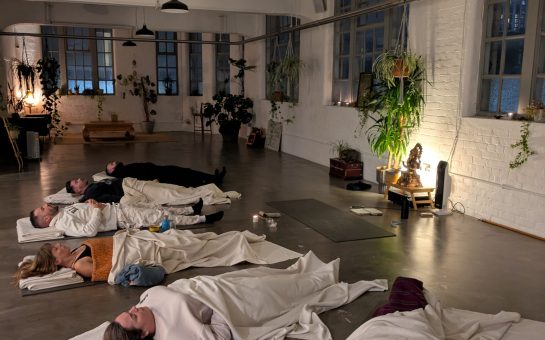Manchester is renowned for its film making, but the lack of funding for independent film-makers and an increasing reliance on Crowdfunding could create difficulties for potential directors.
Captain America: The First Avenger, The Iron Lady and Sherlock Holmes are among the films which have used sets in Manchester’s iconic streets and the city is home to number of film stars including, Steve Coogan, Danny Boyle and Holliday Grainger.
The city is a haven for independent film makers with the Manchester Film Festival, Grimmfest and Kinofilm acting as ideal platforms for indie films to get their first viewings.
But with the abolition of the UK Film Council under the coalition government in 2010, funding for indie film makers has become increasingly difficult to find.
Festival highlights video. Enjoy https://t.co/lA5UEHCQjn
— Kinofilm Festival (@KINOFILM) March 9, 2016
Many producers are being forced to turn to donation sources such as Crowdfunder and IndieGoGo, but this lack of funding runs the risk of cutting the industry in size.
Jay Rozanski, 36, a director from Finningley, said that ‘Crowdfunding felt right’ for his most recent project Old Times, but he admitted that finding funds has become hard.
He said: “Finding funding for any creative idea has always been a challenge but since the recession hit it’s become increasingly difficult.
“Competition seems to be getting fiercer and fiercer.”
Jay has been working on the revenge thriller, a Five Leaf Film Production in association with oXyFire Films, for around four months with producer Tim Atkinson while raising through Crowdfunder to help with the cost of actors, crew and locations.
He said: “Crowdfunding felt right for this project not only for the potential cash investments, but also to start gaining momentum in terms of potential audience.
“We’re asking our Crowdfunding financial backers via the campaign to vote on a couple of our character roles to help us choose their preferred actor.
“We’re hoping by doing this they’ll have an interest in the film and the filmmaking process and help spread the word not only for the campaign but for when it’s distributed released.
“The traditional investment roots very rarely give opportunities to first-time directors and this is one of the reasons why we have chosen to go down the Crowdfunding route.”
But obviously Crowdfunding has its own difficulties.
Today #SquatShot courtesy of @ScottDulson1
Good work lad!@oXyFireMedia @Jenny_Alsina pic.twitter.com/vsIuCjmDmR
— Jay Rozanski (@JayRozanski) January 12, 2016
Jay said: “I think there’s a common misconception that you can add a project onto crowd funding sites like Indiegogo or Kickstarter without considering the marketing, promotion and the publicity needed to raise awareness of the campaign.
“We are ploughing all our energy into ensuring firstly that people know about the campaign, but also that people will be able to easily find out the details that they need to know about the film to make a decision on whether they want to invest in the idea.”
Jay’s team has managed to find some private investors who ‘feel strongly about the project’ so are ‘putting cold, hard cash’ into it, but not all producers are this lucky.
This investment is the ‘traditional’ route that Jay refers to, but it can also involve funding from the British Film Institute or Creative England, from broadcasters including the BBC and Sky Arts, from film competitions such as REED and Enter the Pitch, and from film tax relief.
Jay describes the latter as a ‘great government initiative where you can claim up to 25% production costs already paid out’ and explains that there is ‘a lot of red tape surrounding the scheme to ensure that no one takes advantage’.
However, Loran Dunn, 27, producer and associate lecturer at Manchester Metropolitan University, argues that with government changes to the funding of indie films, it is no longer a ‘sustainable’ path into features and that it puts a lot of pressure on producers.
She said: “The main problem for funding is competition. There are only small pots of money and few of them, and lots of people with ideas for films.
“It can be hard to break through the white noise of everyone shooting low budget short [films] and gain the attention of investors and funders, so there is undoubtedly a period of self-funding to prove yourself.”
Month 4, Film 3! Backed by @creativeengland @bfinetwork A short thriller this time – “Lambing Season” Dir @JackBGill pic.twitter.com/MyyTUZFvnW
— Loran Dunn (@Loran_Dunn) April 1, 2016
Loran has turned to Crowdfunder for her latest project, Lambing Season, a ‘claustrophobic thriller set in the secluded North Yorkshire Moors’.
Her independent production company, Delaval Film, was listed as one of the top 50 most creative companies in the country by Creative England, but Loran considers Crowdfunding to be an essential step in learning what kind of filmmaker you are.
She said: “To an extent the limited funding helps refine projects – your story has to be so strong that it forces you to work really hard at hitting those high standards.
“Obviously I would love to see a time where there is more funding available for filmmakers. Storytelling is not just a national past time but part of our make-up as humans.
“It’s so important to share stories from all sectors of society, not just those rich enough to continually self-finance themselves.
“The climate has changed drastically over the last ten or fifteen years. There was a time where the budget for a short film would be £50,000, everyone would be paid – it was a sustainable career path into features.
“But with changes in government support budgets have dropped to £5,000.”
This major change came with the abolition of the UK Film Council in 2010 under the coalition government.
Excited to be a Producer on Last Man On Earth starring the #Sixthdoctor Colin Baker – https://t.co/RXt21jwbGH pic.twitter.com/K42oitM1My
— Leah Blackaby (@leahblackaby) June 17, 2015
Jay said: “I personally think the abolition of the UK film Council was a curious decision.
“lt was a great place to go for advice, funding opportunities and assistance in raising money.”
However, Leah Blackaby, 24, a producer from Hertfordshire filming in Manchester, found no help from the Government after Creative England only helped her find locations rather than offer any sort of funding.
She said: “[With an indie film] you don’t have the guaranteed cinema going that you would with a feature film or with a main production company that everyone knows, so you’re not going to get the profit back.
“There generally isn’t any profit. But for us it’s more about showing the film and showing what we can do.”
Leah explained that most members of the crew on her latest project, Last Man on Earth, were forced to maintain day jobs while working on the film – another reason they turned to IndieGoGo.
She said: “I think because it’s a love – it’s a passion – you don’t really mind spending the extra time on it.
“But there were times when it was just really tiring.”
For Last Man on Earth, filmed across Manchester and starring ex-Doctor Who Colin Baker, the team had to raise over £10,700 to help with actors costs, sound equipment, cameras, make-up, prosthetics, locations and sending the film to festivals across the world.
Leah said: “It’s definitely very off-putting – the fact that you can’t really afford to make these films.
“But if you’re genuinely committed to becoming a film maker then it shouldn’t put you off.
“I’ve been working on a couple of other films with another production company and they’re pretty much no budget.
Rehearsals last weekend with @ChrisFaith1234 & Mark Vanhendrijk #acting #filmmaking #indiefilm #SupportIndieFilm pic.twitter.com/8e6zARJUM1
— ENDS MEAT (@EndsMeatMovie) April 13, 2016
“We’ve been managing to do some things, but it’s been very much beg and borrow a lot of it, just calling in favours with people, and it can be done but it’s a lot harder work.
“If you can get the Crowfunding there then obviously you can make something just a little bit more special.”
Helen Lyons-Curran, 34, a director from Manchester, said she also faced ‘a constant uphill battle to find funding’ for her most recent project, Ends Meat, for which she struggled to raise her £4,000 target on IndieGoGo for location costs, equipment rental and transport.
She said: “For all the struggles, there’s also the creative freedom to explore different ideas, concepts, styles and such.
“It’s also a great opportunity to learn and hone your skills and gain confidence in your own abilities.
“It’s a catch-22 really, with little money you’re restricted in the ways of finance, and with funding maybe you’re a bit restricted in how much control you have of the film.”
Loran said: “My advice is not to be daunted. I certainly felt, when I was starting out, that funding was completely unobtainable.
“But really there is a wealth of support out there from training and screenings to advice and guidance that can make you more able to compete in the funding arena.”



